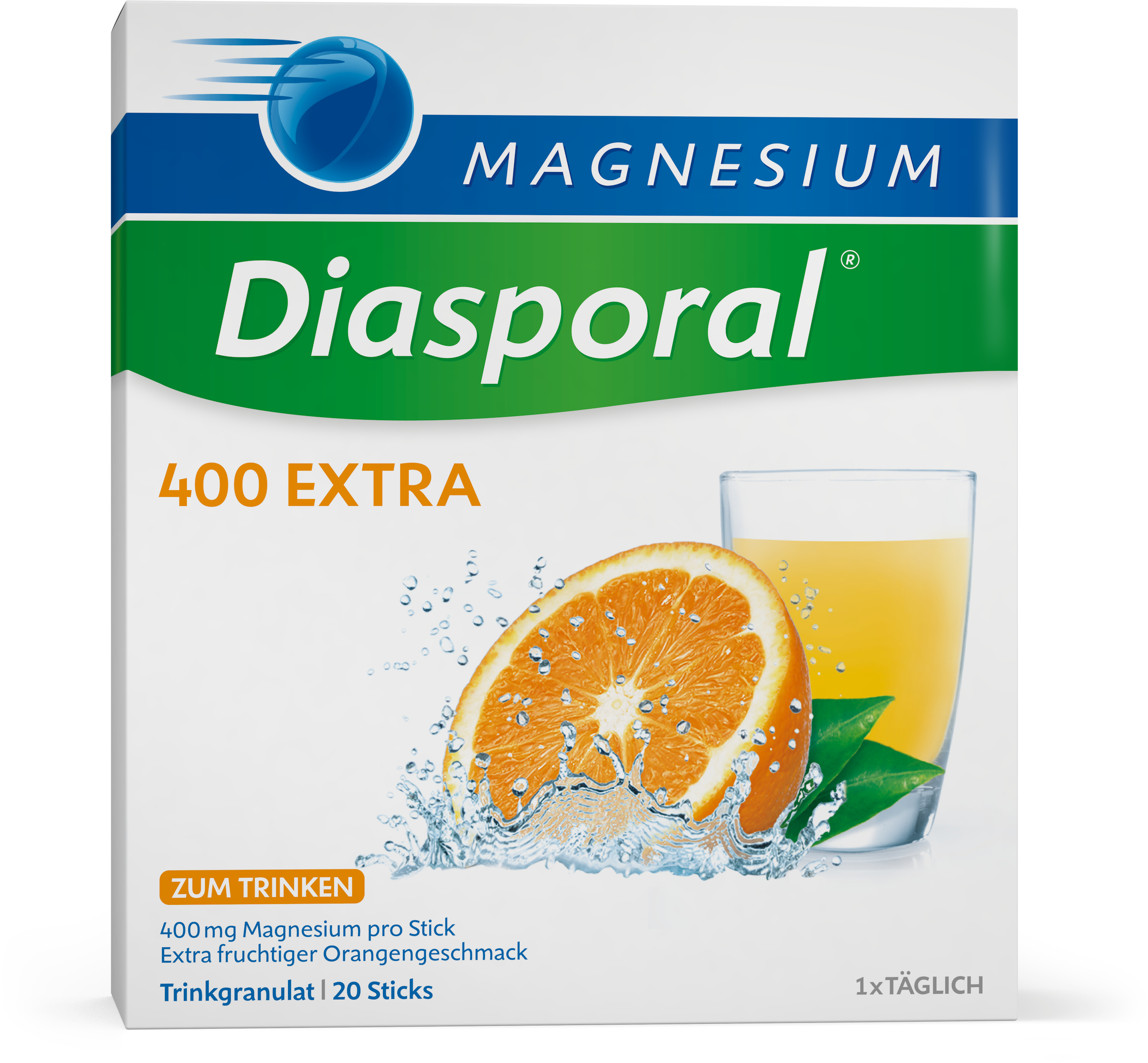
MY MAGNESIUM: EXERCISE
SPORTS AND EXERCISE: GETTING AND STAYING FIT WITH MAGNESIUM
We live our lives on the move. Some of us are physically active on the job or have a hobby that keeps us moving. Others like to go jogging in the evening, cycle in their free time or play team sports. Whatever moves us, all physical activities have one thing in common: They consume our energy and make us sweat. Depending on the intensity of the activity and our fitness level, we lose between 0.8 and 3 litres of fluid per hour. Whenever we lose fluid, we lose magnesium along with it. Moreover, magnesium is a key factor in energy-yielding metabolism, which is why magnesium is consumed any time we expend energy. This is why our magnesium requirements increase when we engage in sports and intense physical activity. Active people therefore need to replace the lost magnesium. This allows us to perform well, stay healthy and keep moving.
WHY IS MAGNESIUM SO IMPORTANT FOR PHYSICALLY ACTIVE PEOPLE?
It's good for us to feel our muscles working, the rhythm of our breathing and the blood flowing through our veins. Our muscles, lungs and veins are our physical “assets” – and they need nutrients to perform well. We put a lot of strain on our muscles when we exercise. They stretch and contract, often over long periods of time. Whenever we engage in physical activity, each and every fibre of our muscles goes into high gear. It's not surprising then that they need so much energy. Magnesium plays a critical role in supplying this energy.
This power mineral plays an important role in energy-yielding metabolism because the enzymes involved in glucose metabolism need magnesium to work. The mineral is also a key component of adenosine triphosphate (ATP), the energy-carrying molecule in our bodies. Without magnesium, energy cannot be released. In addition, a lack of oxygen causes lactate to build up, which affects physical endurance. Magnesium can lower the lactate level, which has a positive effect on athletic performance. It is also important to replenish the magnesium lost through sweat in order to prevent muscle problems.
To maintain normal muscle function, athletes should quickly replenish the magnesium and fluids lost after physical activity.
WHAT HAPPENS WHEN WE LOSE MAGNESIUM?
It's a familiar feeling for any athlete: Our muscles are hard, our body seems to tense up, our movements become irregular. This is our body's way of telling us that something is missing. There is much to suggest that these are signs of magnesium deficiency. Without nutrients, our body cannot function as a whole. It is more difficult to move, and regeneration takes longer. For this reason, we need to obtain nutrients on a continual basis.
WHAT SHOULD WE DO IN ORDER TO ENSURE ADEQUATE MAGNESIUM INTAKE DURING EXERCISE?
We all know that we need to drink during and after physical activity in order to replace lost fluids. One rule of thumb is to replace every litre of sweat with one and a half litres of water. But what about electrolytes? These stores are often depleted after exercise, leading to muscle problems and poor regeneration. People who engage in physical activity should ensure that they are getting enough magnesium, since individual magnesium requirements may be higher depending on the intensity of the activity. We recommend Magnesium-Diasporal® 400 EXTRA granulated drink mix for people with increased requirements.
Is magnesium a mineral or an electrolyte? The answer is both. Electrolytes are minerals that carry an electrical charge when dissolved in a liquid. Electrolytes in the blood, such as sodium or magnesium, help regulate muscle function and maintain a stable water balance in the body.

